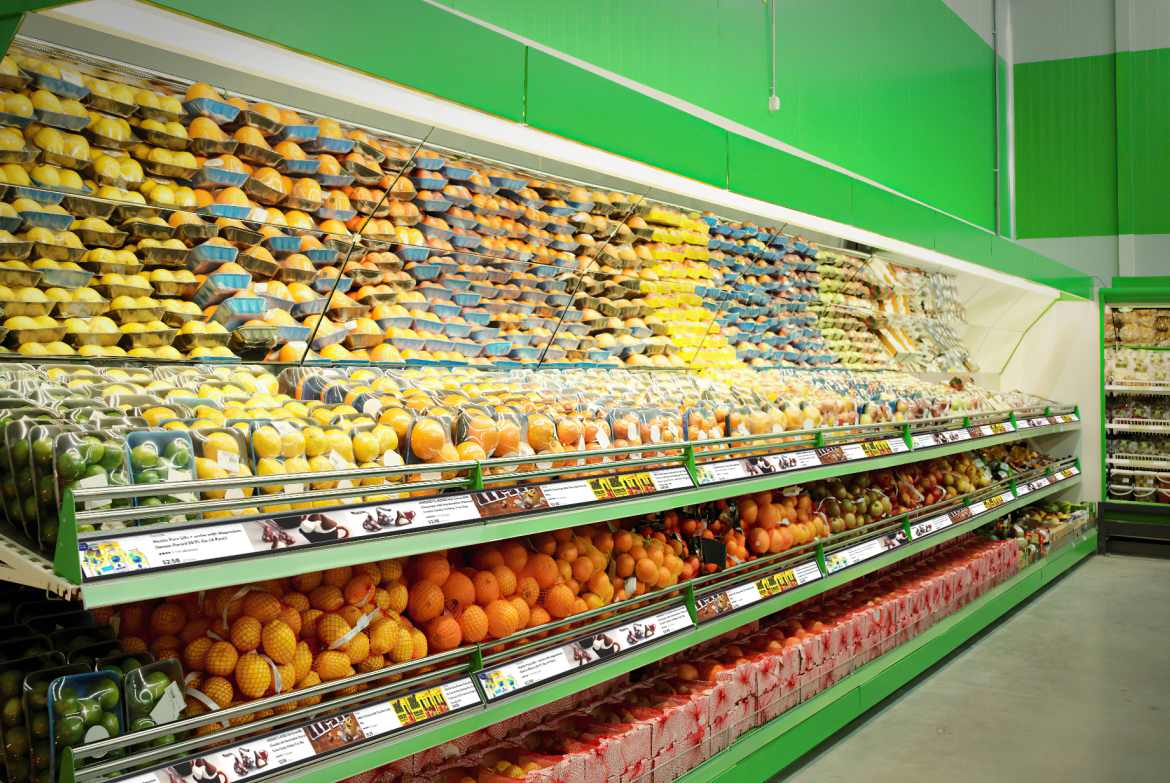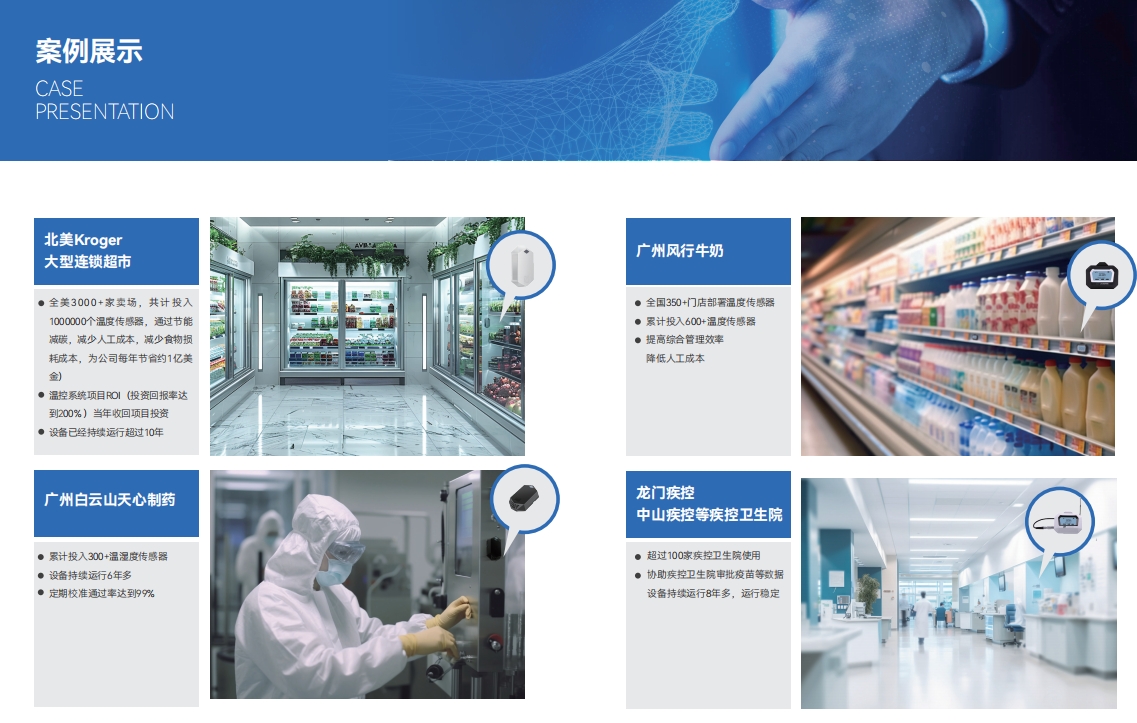The New Revolution in Supermarket Cold Chains: Temperature Monitoring Technology Leading the New Trend in the Supermarket Industry
In recent years, the domestic supermarket industry has experienced rapid development, with market size continually expanding. According to data, the market size of China's fresh supermarket industry was approximately 3.167581 trillion yuan in 2022. The online penetration rate has been increasing year by year, with the online penetration rate of China's fresh supermarket industry reaching about 21.66% in 2022. Diverse formats such as large chain supermarkets, fresh supermarkets, and community convenience stores are developing in parallel, meeting consumers’ diverse shopping needs. However, the rapid development of the supermarket industry has also faced many challenges, with temperature monitoring being an important aspect that cannot be ignored in supermarket operations.
The variety of goods sold in supermarkets is vast, especially fresh food, which has extremely high requirements for temperature control. Taking meat as an example, according to food safety standards, the storage temperature of refrigerated meat should be controlled between 0°C and 4°C, and the storage temperature of frozen meat should be below -18°C. Once the temperature exceeds this range, the meat easily spoils, not only affecting taste but also potentially posing a threat to consumer health. Moreover, fresh foods such as vegetables and fruits also need to be stored at appropriate temperatures to extend their shelf life. Therefore, the need for temperature monitoring in supermarkets is becoming increasingly urgent.

Traditional temperature monitoring methods mostly rely on manual inspections and thermometer measurements, which have many shortcomings. First, manual inspections require a lot of human and material resources, and inspection frequency is limited, making real-time monitoring difficult; second, thermometer measurements are susceptible to human factors, making it difficult to guarantee data accuracy; lastly, traditional methods cannot provide real-time recording and analysis of temperature data, making it difficult to provide strong support for supermarket temperature management.
The introduction of full-process cold chain temperature monitoring technology represented by Jingrui Intelligent effectively addresses these pain points. The full-process cold chain temperature monitoring system can achieve real-time, continuous monitoring of temperatures in various areas of the supermarket by installing intelligent temperature sensors and monitoring devices, and the monitoring data is transmitted in real-time to the cloud control system. Managers can check temperature data anytime through terminal devices like mobile phones or computers and make adjustments as needed. The intelligent temperature monitoring system also features an automatic alarm function. When the temperature exceeds the set range, the system automatically triggers an alert, reminding managers to take timely action. This real-time monitoring and early warning mechanism greatly improves the efficiency and accuracy of supermarket temperature management.
The introduction of full-process cold chain temperature monitoring technology brings considerable value to supermarkets. First, it improves the efficiency and accuracy of temperature management, reducing product loss and food safety risks caused by improper temperatures. For example, after adopting the full-process cold chain temperature monitoring system developed by Jingrui Intelligent, the food loss cost at Kroger, a large U.S. chain supermarket, significantly decreased, saving the company about 100 million USD annually; second, it can provide real-time monitoring and recording of temperature data, offering strong support for various aspects of supermarket operations such as procurement, inventory, and sales; lastly, the full-process cold chain temperature monitoring system can also integrate and collaborate with the supermarket’s ERP, CRM, and other systems, enhancing overall operational efficiency and customer satisfaction.

As the continuous development and application of technologies such as IoT, big data, and artificial intelligence, intelligent temperature monitoring technology will play a more significant role in the future of the supermarket industry. First, with ongoing advancements in technology and cost reductions, the penetration rate of intelligent temperature monitoring systems will gradually increase; second, supermarkets will gradually achieve intelligent and digital transformation, with intelligent temperature monitoring becoming an essential part of smart supermarket management; lastly, as consumers’ demands for food safety and shopping experience continue to rise, intelligent temperature monitoring will help supermarkets enhance their image and competitiveness.
In particular, future supermarkets may adopt more advanced intelligent temperature monitoring technologies, such as using IoT technology to achieve remote monitoring and real-time analysis of temperature data; using big data technology to conduct in-depth exploration and analysis of temperature data, providing more accurate decision-making support for various aspects of supermarket operations such as procurement, inventory, and sales; using artificial intelligence technology to achieve automatic adjustment of temperature and intelligent upgrades to early warning mechanisms, among others. The application of these technologies will further enhance the level of temperature management and service quality in supermarkets, bringing consumers a safer, more convenient, and comfortable shopping experience.

